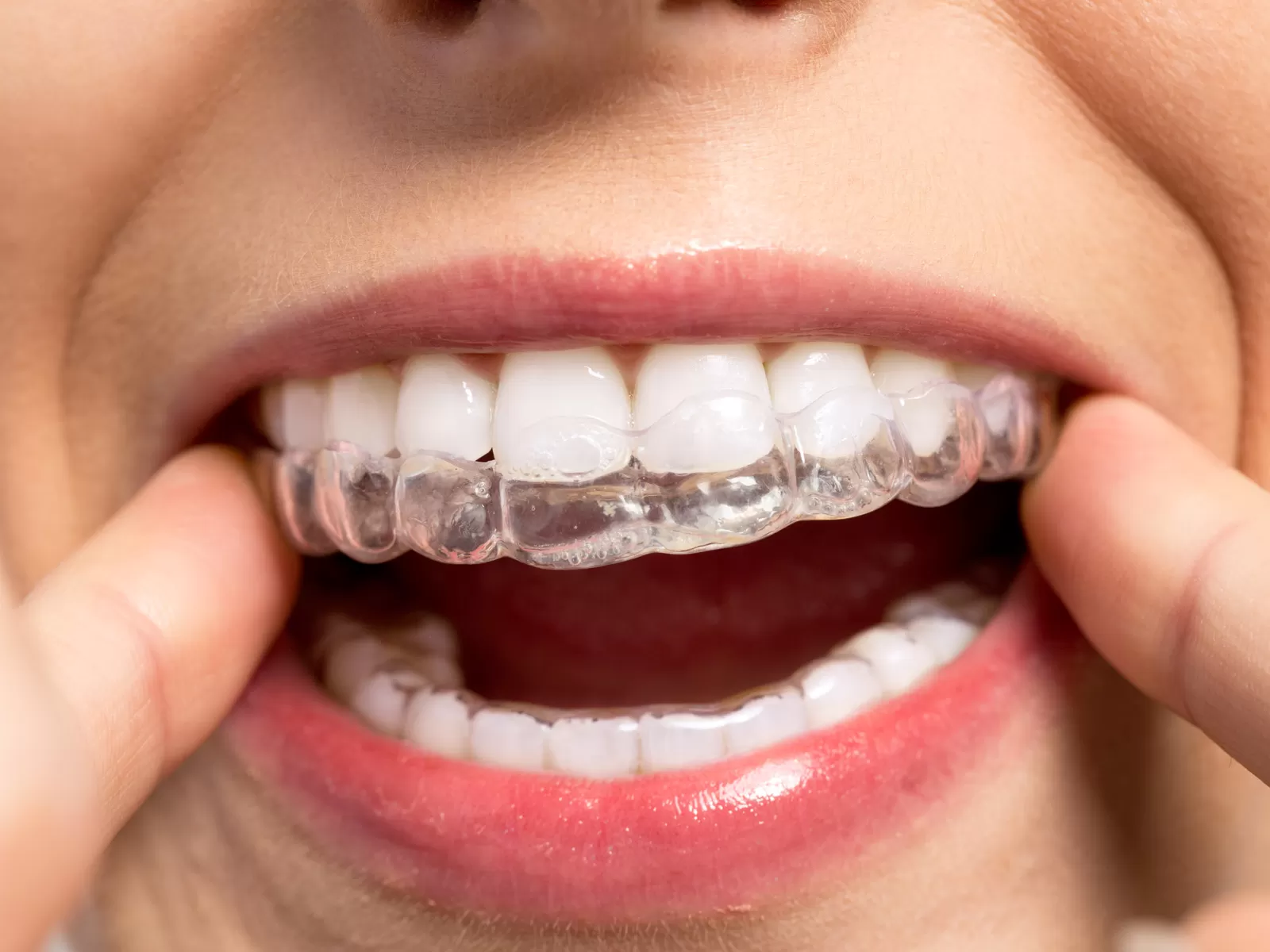Invisalign in Gaithersburg, MD
Invisalign is a popular orthodontic treatment option for adults and teens alike that uses clear aligners to discreetly straighten your teeth and give you that beautiful smile you’ve always dreamed of! Your Invisalign orthodontic treatment starts with a consultation, during which our dentist will discuss your goals and expectations and examine your mouth and teeth.
Once you are determined to be a good candidate for Invisalign treatment, our dentist at Lifetime Smile will create a series of custom aligners you will have to wear daily and change out every few weeks. Each aligner gently changes the alignment of your smile until your treatment is complete.

How Does Invisalign Work?
During your first appointment, you can discuss with our dentist at length about your smile goals and what you hope to achieve after your orthodontic treatment. Our dentist will set up a treatment plan for you and create a 3D image showing how your teeth will look at the end of the treatment. This will help you understand what you can expect and keep you on track throughout your orthodontic treatment.
Once your treatment plan is in place, we will take digital images of your teeth that we will use to create your aligners. Your custom aligners will be made in a lab. Once they are ready, we will invite you back to the office to pick up your aligners and bring them home to use as directed.
It is important to remember to wear your aligners for 20-22 hours each day for the best results. When you are not wearing your aligners, you must store them properly and clean them often.
Every few weeks, you will come back to our office so that we can check your progress and provide you with new aligners if needed. We will need to monitor you to ensure you are progressing as planned. If we see that your teeth are not moving as expected or have any issues, we can adjust your treatment as needed.
The Advantages of Invisalign
Improved Oral Hygiene
Invisalign aligners are removable, so you can clean your teeth as usual by simply removing the aligner trays. This will help you maintain optimal oral hygiene, which is important for maintaining the health of your teeth and gums, as well as for fresher breath. With Invisalign, you can effectively brush and floss to keep your smile healthy and beautiful.
No Metal
Traditional braces use metal brackets, wires, and rubber bands. Patients may experience sore mouths due to the metal brackets and wires irritating or even cutting into their lips or cheeks. Invisalign uses clear aligner trays made from BPA-free plastic. The aligners are removable to make eating and cleaning your teeth easier, and because there are no metal wires or brackets to irritate your mouth, your orthodontic treatment will be more comfortable.
No Food Restrictions
Invisalign aligners are removable. This means you can take them out when you eat so you can enjoy your favorite food during your orthodontic treatment without any problems. Just make sure to clean your teeth properly before putting the aligners back.
If you are interested in getting a new smile with Invisalign, visit Lifetime Smile at 101 Lakeforest Blvd Suite 101, Gaithersburg, MD 20877, or call (301) 869-1170.
Visit Our Office
Gaithersburg, MD
101 Lakeforest Blvd Suite 101, Gaithersburg, MD 20877
Email: info@lifetimesmiledds.com
Book NowOffice Hours
- MON - THU8:00 am - 4:00 pm
- FRI - SUNClosed